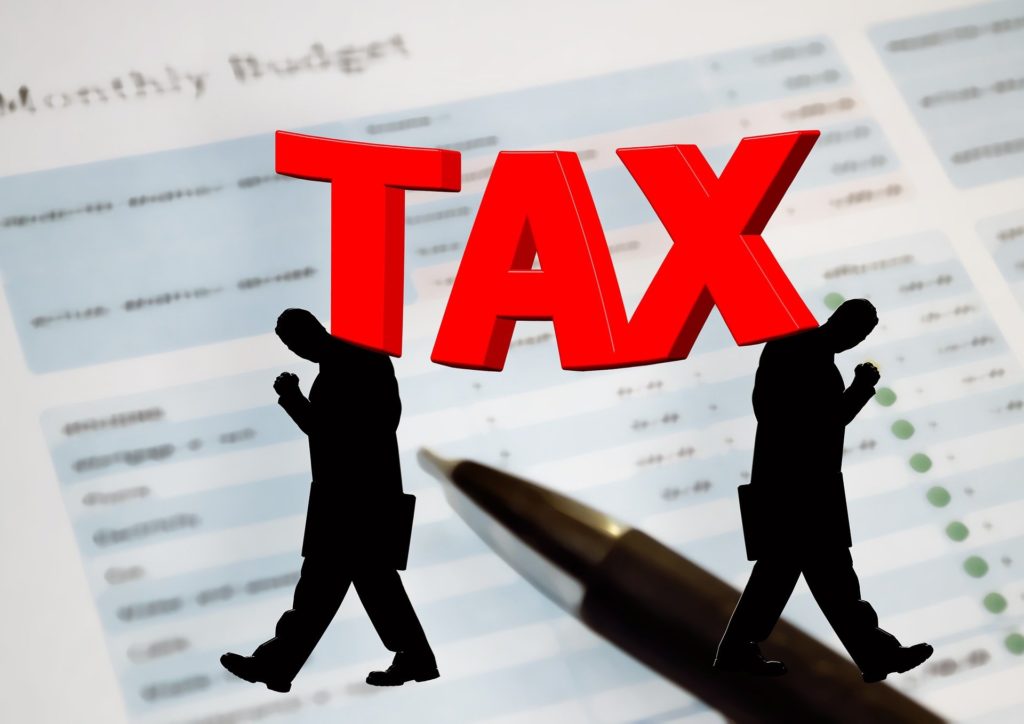
ARE YOU PAYING TOO MUCH IN TAXES?
Would you like to keep more of your hard-earned cash?
by Harland Merriam
I am thinking about a tool to reduce your taxes? Can you guess what it is?
I’m not talking about a 401(k) or IRA. This one has been used by the wealthy for generations.
Taxes are one of the greatest threats to building your wealth.
I legally pay little or no income federal income tax on the income I receive from my investments.
Can you say the same?
Are you paying federal income tax on the income you are receiving from your investments? It can seem like a lot. And the income we receive on most investments is taxable..
Many of the wealthiest people have known for years how to reduce their tax burden, and so can people like you and me.
The reason I pay little or no income tax is this: the significant tax benefit of real estate investments.
Real estate investments are different. They have a secret weapon called DEPRECIATION.
Normally any income we receive is taxed by the federal government in the year we earn it. Thus the name “income tax.” But, when it comes to real estate investments, the tax code contains a number of significant tax advantages which you and I can employ when we own real estate.
Please consult with your own tax advisors for how the following advantages might apply to your investments and your income. Each of our situations may differ.
COMPARE: AN INCOME PRODUCING STOCK VS INCOME PRODUCING REAL ESTATE PROPERTY
Compare the income you receive from, lets say, an income-producing stock with the income you receive from an income-producing rental property. You will likely pay a whole lot more federal income tax on the income you receive from your stock investments.
Follow this example and learn why.
Let’s assume you made an identical $100,000 investment in each. And, let’s assume you receive an identical 5% return on each.
Let’s also assume you are in the 20% tax bracket.
Therefore, with the income you receive from your stock investment, you would likely pay 20% of $5,000, or $1,000, in income tax.
But with real estate, because of depreciation, you might pay much less or nothing at all in income tax. You could end up paying even less income tax on your other income.
The depreciation available on your rental property in the example above could be as much as $6,000 or even $10,000, which would offset your net income “on paper” and could completely eliminate paying taxes on that income this year. It might even offset some of your other income.
Sound interesting? Read on.
DEPRECIATION
Let’s look at depreciation.
If you purchase stocks or mutual funds, you may receive dividends, which are some portion of the net income that the stock or portfolio of stocks has produced. Stocks, mutual funds and most other investments are not allowed to use this tool called depreciation, which is so powerful when it comes to taxes.
The Federal Tax Code requires owners of real estate to depreciate the property. The tax code recognizes your buildings and other improvements wear out over time.
They depreciate in value, kind of like that car you bought. It is worth less and less each year you drive it and put wear on it.
The beauty of depreciation is we don’t actually spend money to receive this tax advantage. Unlike the business expenses we mentioned above, depreciation is a “paper loss.”
We are able to reduce our net income for tax purposes without spending any money to do it.
It is depreciation that often prevents my income tax from rising very much, or at all, even though I have actually received net income from my real estate investments.
I hope this makes sense. If not, give us a call and we can help you understand this powerful benefit of investing in real estate compared with many other investments.
REQUIREMENTS FOR DEPRECIATION
There are some limitations to being able to claim depreciation.
Generally depreciation is applicable for real estate assets purchased as investments and held for more than one year. The land is not depreciated, because it is deemed not to wear out. You are only depreciating the improvements on the land that wear out, decay, or lose value over time.
Check with your tax advisors to see how you can claim this wonderful, powerful tax benefit on your real estate investments.
THERE IS A CATCH
Of course, there is a catch. The federal government will eventually get their taxes. In most cases (we’ll look at the primary exceptions below) the depreciation we “write off on paper” over the life of the property will be “recaptured” as a taxable amount at some time in the future, upon the sale of the property.
Yet, even though we will eventually pay some income tax (probably), depreciation is still a significant benefit, because of the “time value of money”. The dollars we pay in the future will be worth less than the dollars we might have paid in the present.
THE TIME VALUE OF MONEY
The tax benefit we are given each year eventually becomes a tax liability at a future date, when we sell the property. But, we get to push off that date. We are able to delay paying taxes on that income.
The value to us is we have the money today and can benefit from the savings today. In effect the taxes we pay in the future are worth less than they would be if we had to pay them today.
One way to think about this is taking that dollar you don’t pay in taxes this year and investing it. So, over time, I have more money in the future when the tax bill becomes due.
FUTURE TAX BILLS CAN BE DELAYED OR EVEN ELIMINATED
Now, there are a number of ways we can handle that future tax bill. We’ll just mention them here. You can explore these in more detail on your own.
One way is through a 1031-Exchange, transferring the net capital gain into another property.
Another way is to simply refinance the property, recovering some of the equity to use for another investment.
A third way is to pass the property on in your estate. In this case your heirs receive the property with a stepped up basis to current market value, and the tax liability from depreciation is eliminated.
Simply realize there are ways to deal with that future payment of the taxes deferred because of the depreciation benefit of real estate.
CONCLUSION
So, what do you think about these tax benefits of real estate?
We think depreciation is one of the reasons real estate is an I.D.E.A.L. investment. It is the “D” in IDEAL.
Keep learning more about real estate investing, passive investing, and investing in multi-family properties by getting on our email list. Download our ebook “3 Keys to Unlocking Your Retirement” which will also place you on our email list. CLICK HERE TO DOWNLOAD THE EBOOK.
Even better, join our Attune Investors Club in which you will receive additional information and a direct link to us. CLICK HERE TO JOIN THE CLUB.

Harland leads our Investor Relations. He is a “repurposed” Pastor and Army Chaplain. He is an author, speaker, mastermind facilitator, and coach. Harland lives with his wife, Barbara, in DeLand, Florida.

